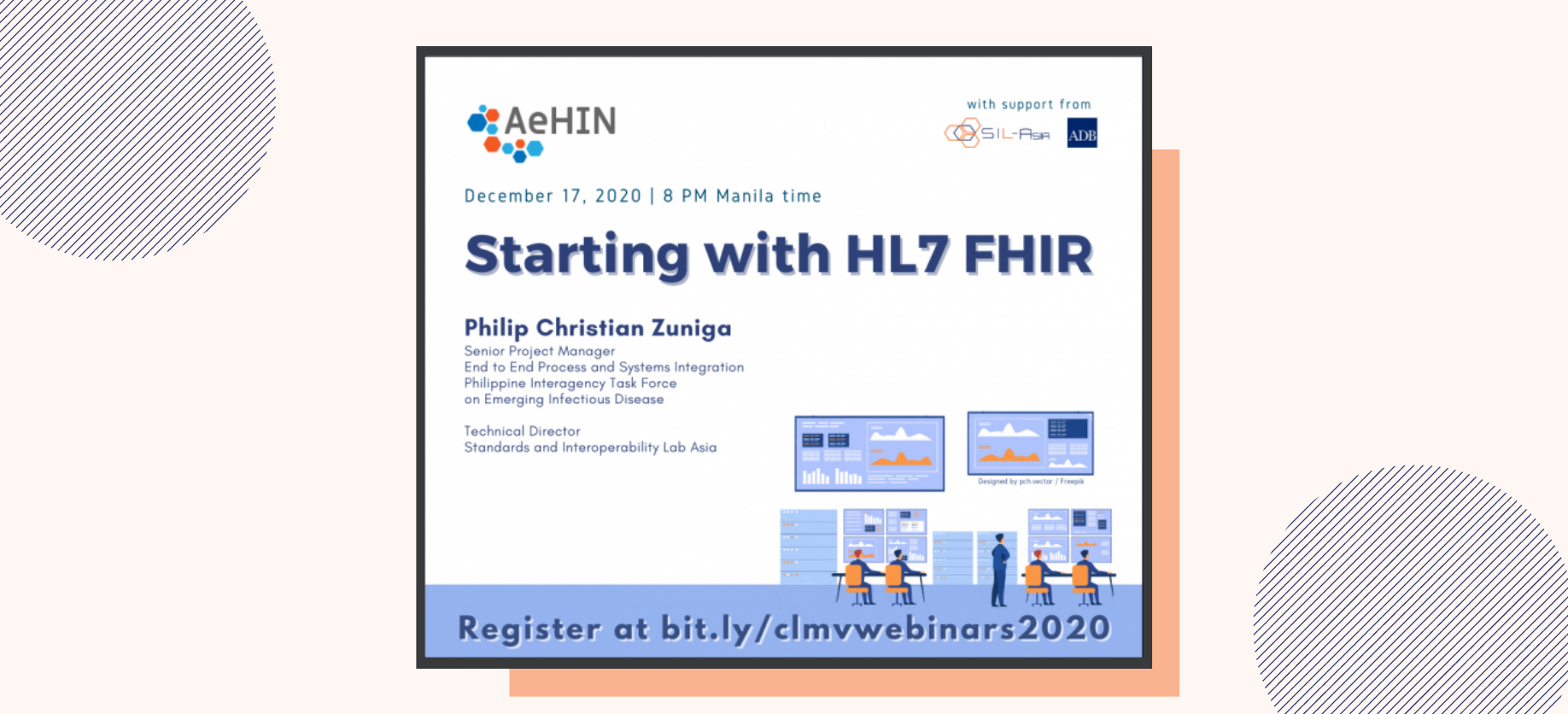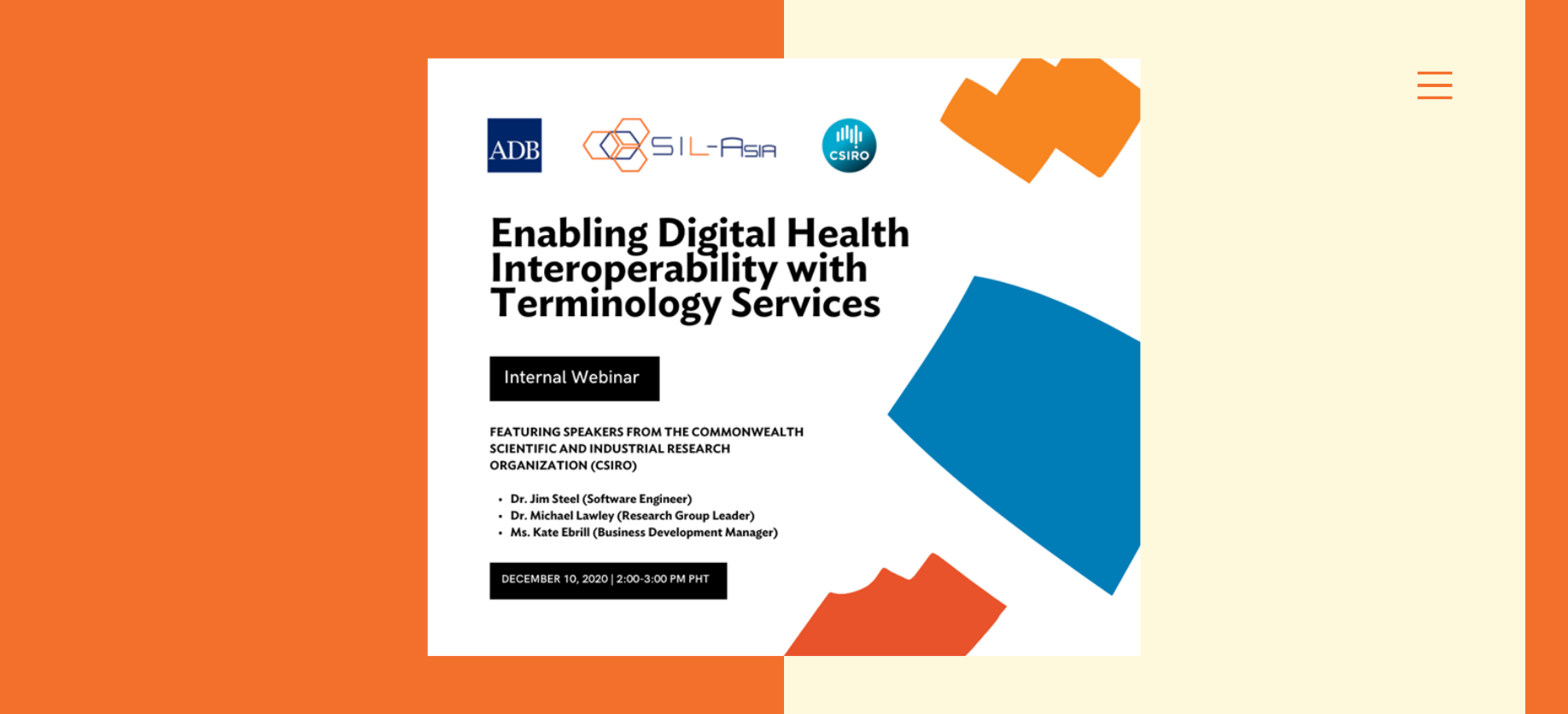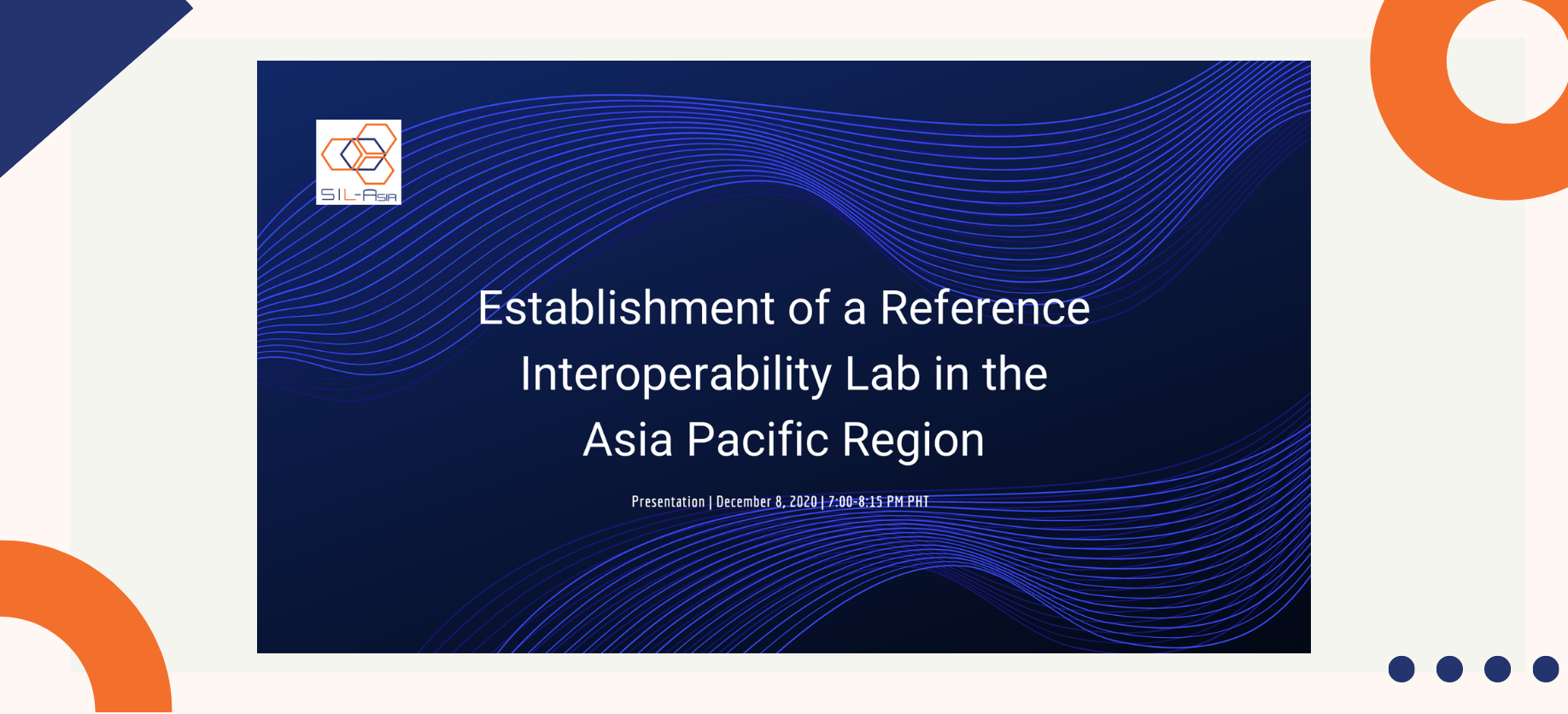MANDALUYONG, Philippines – The Standards and Interoperability Lab – Asia (SIL-Asia), Asia eHealth Information Network (AeHIN), and Asian Development Bank (ADB), with sponsorship from the Republic of Korea e-Asia and Knowledge Partnership Fund, conducted a National FHIR Workshop in the Philippines with the theme, ‘FHIR-ing up Digital Health II: A Deep Dive on FHIR’ on 16 January 2020 at the Asian Development Bank Headquarters. The organizers gathered around one hundred local delegates to the workshop. They represented sectors from the government, universities, hospitals, health information technology providers, and other non-government organizations.
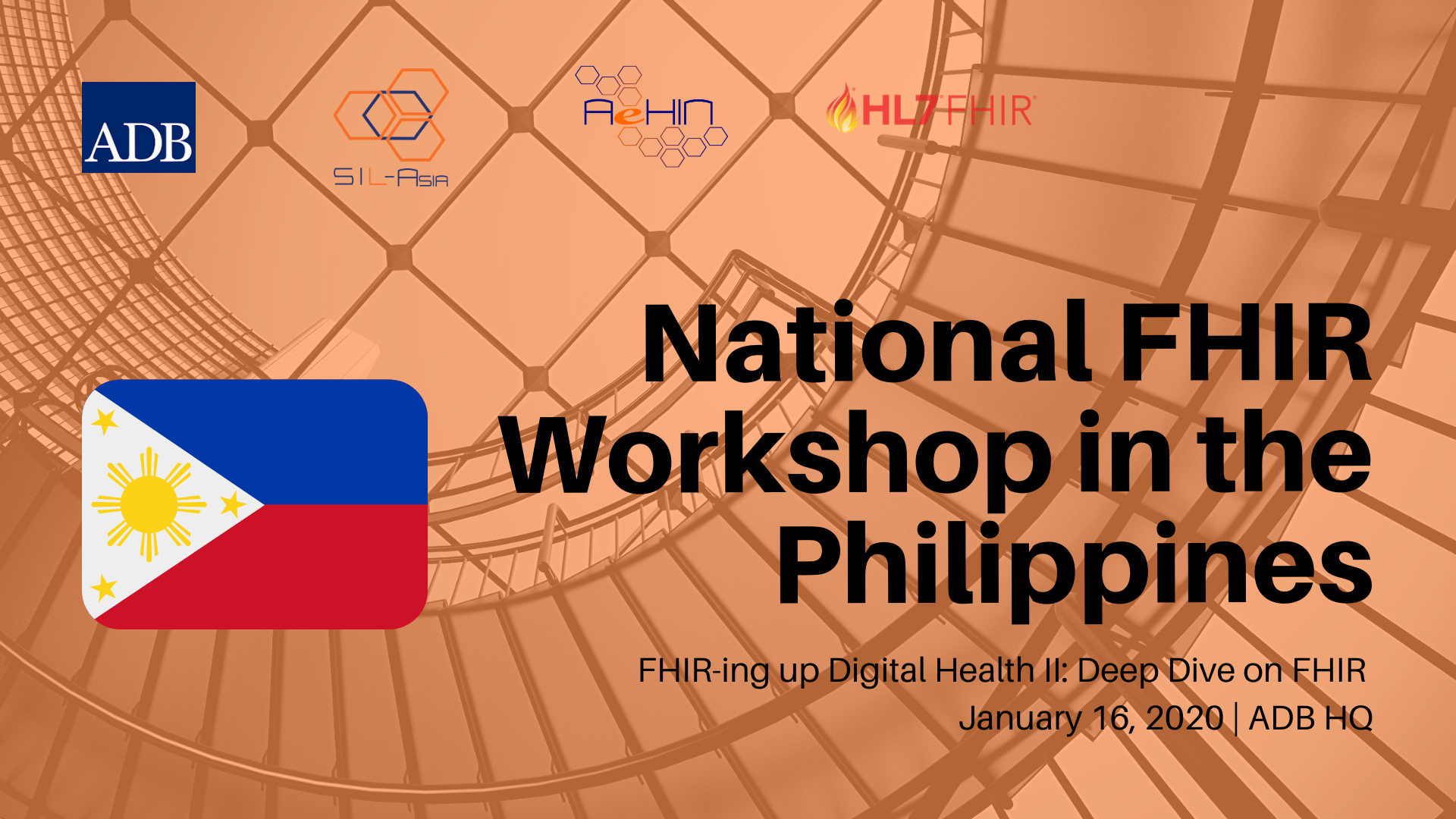
Official Event Banner for the National FHIR Workshop in the Philippines
Building on the first FHIRing up Digital Health in the Philippines activity, a kick-off symposium organized by SIL-Asia last May 24 2019, this second event focused on a deeper dive into the world of Health Level Seven International – Fast Healthcare Interoperability Resources (HL7-FHIR). ADB Principal Health Specialist, Dr. Eduardo Banzon and AeHIN Executive Director, Dr. Alvin Marcelo formally welcomed the participants of the recently concluded National FHIR Workshop.
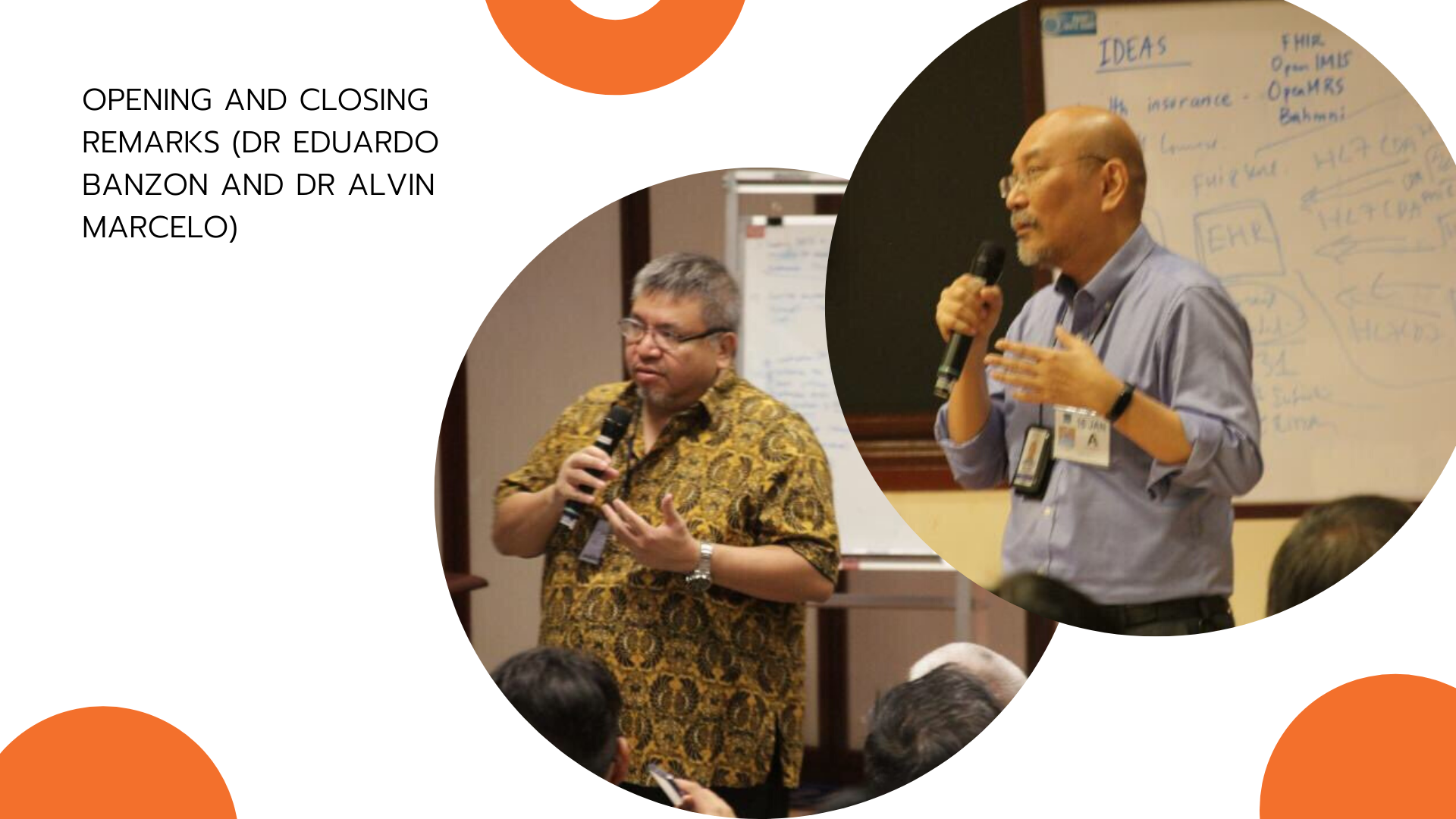
FHIR Discussions
James Agnew, Lead Architect with the Centre for Global eHealth Innovation (UHN) in Toronto Canada, and a member of the FHIR Core Team presented the participants with a comprehensive introduction to HL7-FHIR.
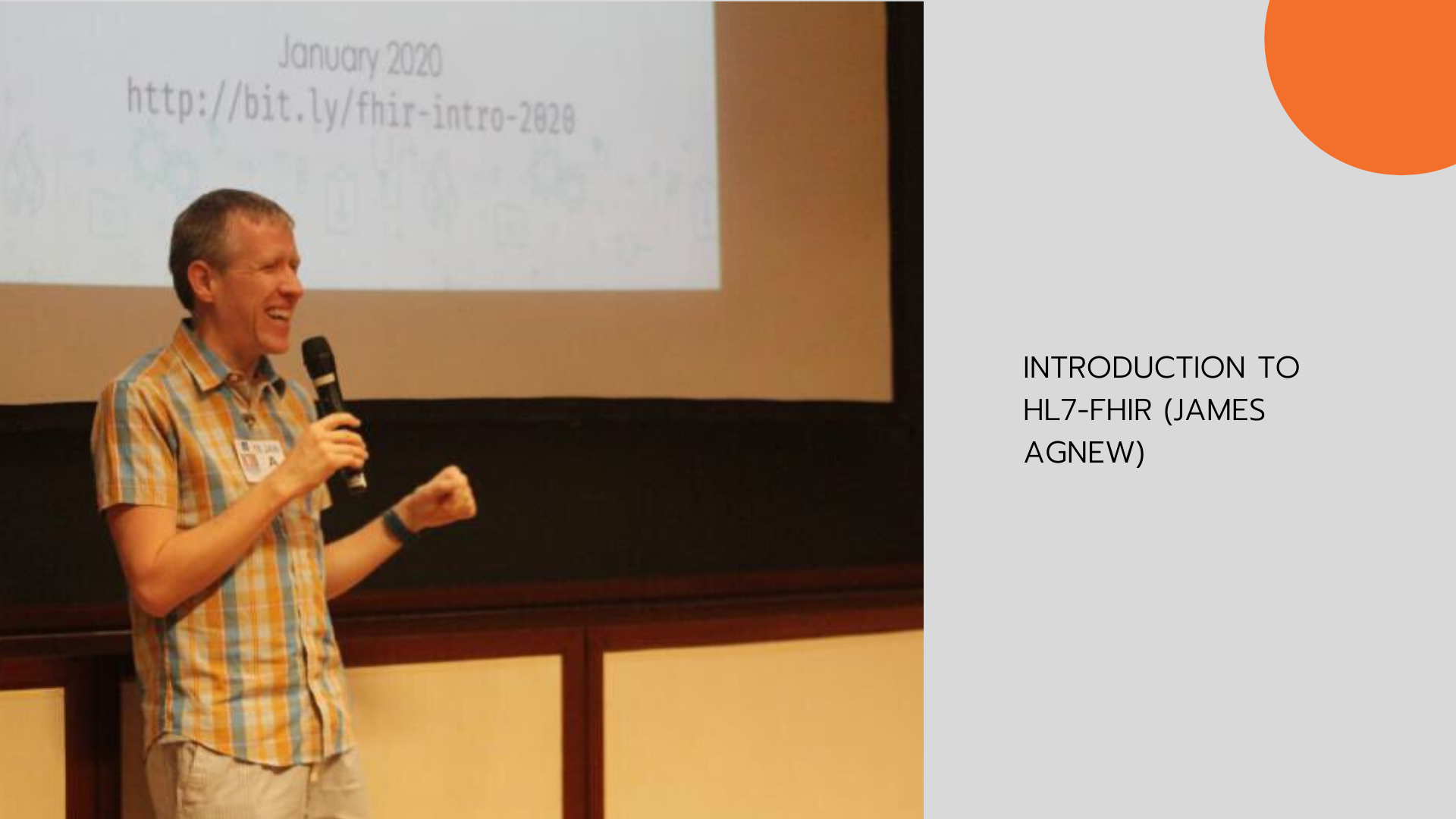
In relation to this general overview, Ada Angeli Cariaga, SIL-Asia Lab Expert discussed how the participants can perform Create, Read, Update, Delete (CRUD) Operations and search on FHIR by just using their mobile phones.
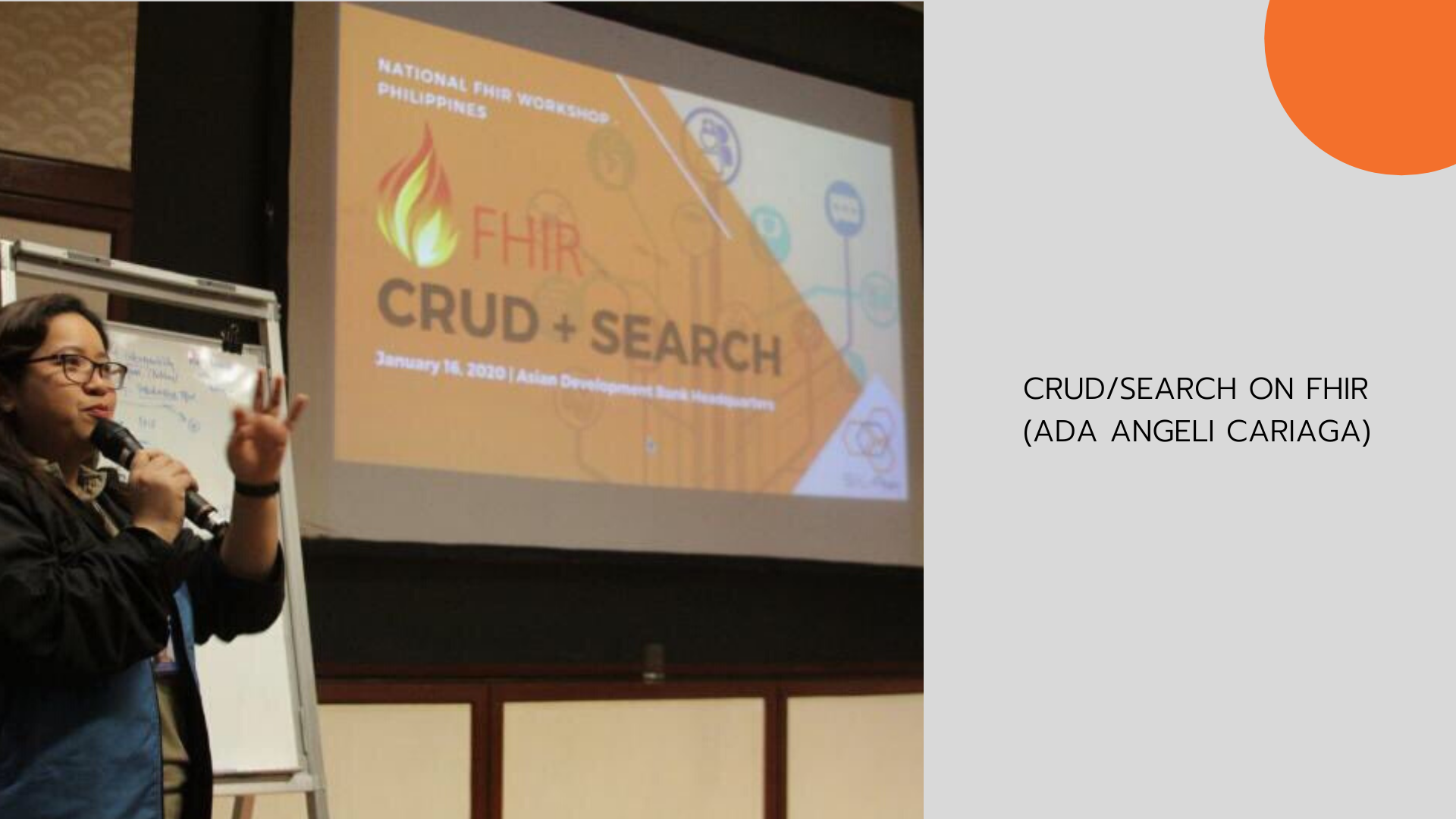
Furthermore, Rose Ann Zuniga, SIL-Asia Lab Expert also talked about SIL-Asia’s FHIR Starter Toolkit, a repository of existing tools and guidance to help individuals and groups kickstart their FHIR-related initiatives and projects. This includes a set of instructions on implementing a FHIR server, and also on using FHIR profiles, among others.
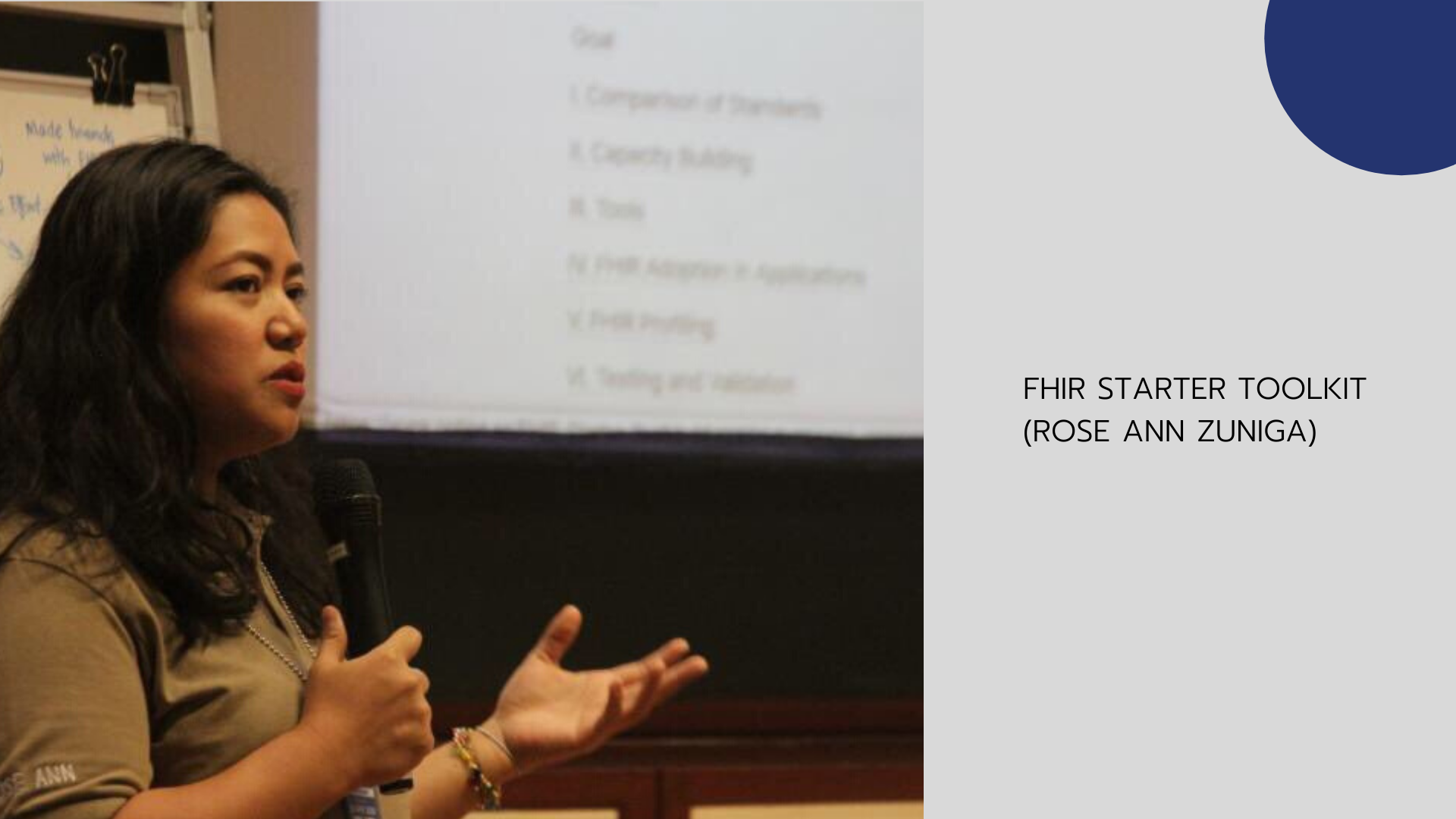
UHC Perspective
Aside from FHIR-focused discussions, the workshop also included insights on the new Universal Health Care (UHC) Act in the Philippines. One of the important components of the act is the development of service delivery networks (SDN). This implies that healthcare service should be accessed wherever the patient is.
For this model to work, health facilities should implement interoperable health information systems. These are systems that could easily communicate with one another and share patient data.
With this, SIL-Asia Clinical Lead, Dr Raymond Sarmiento talked about the clinical perspective of implementing FHIR in the Philippines. He shared how HL7-FHIR can be used as a standard for interconnecting health information systems in the country.
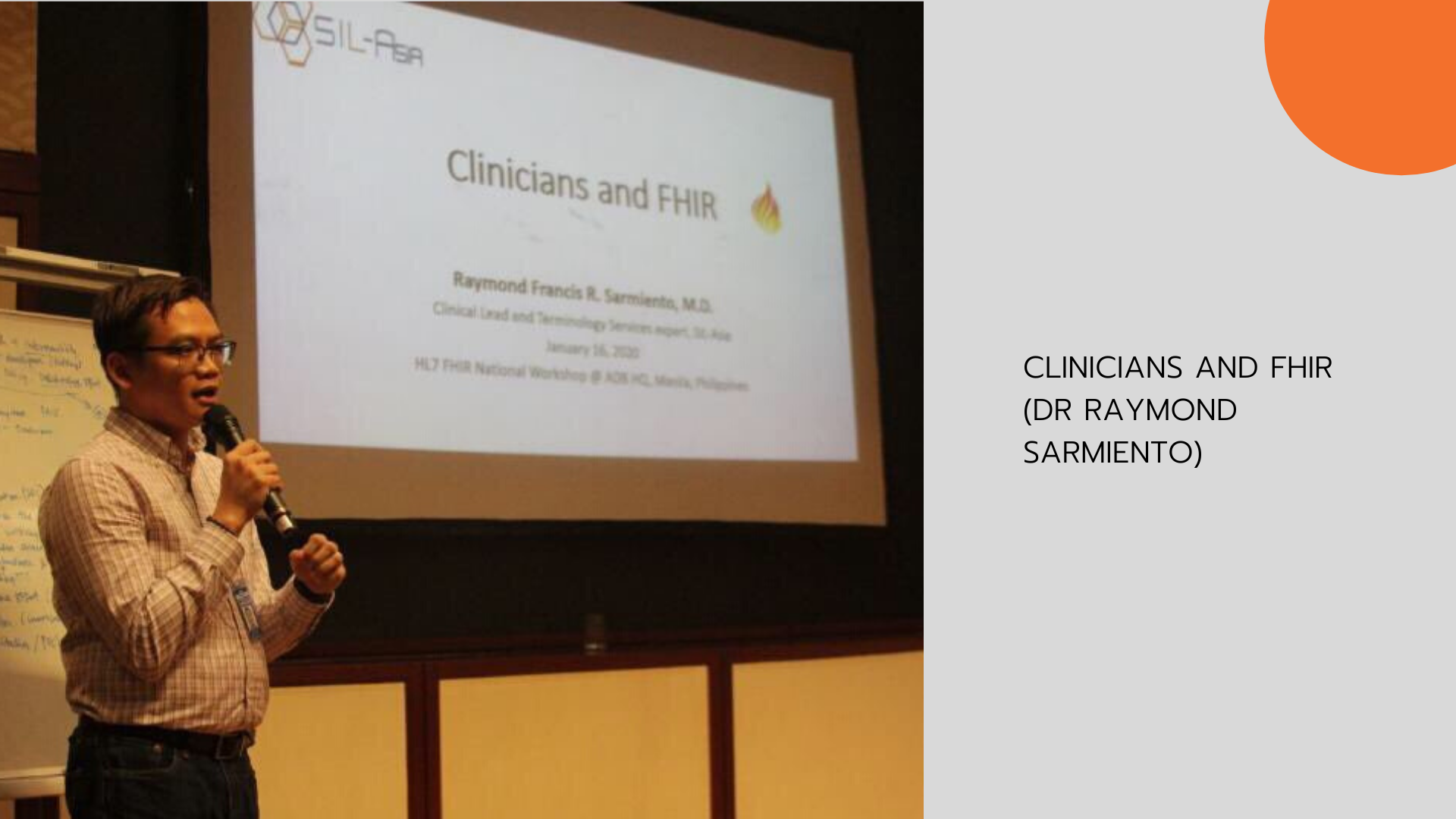
In line with the clinical perspective on FHIR, Prof. Philip Christian Zuniga also discussed the work that SIL-Asia has been doing to initiate FHIR-related efforts in the Philippines.
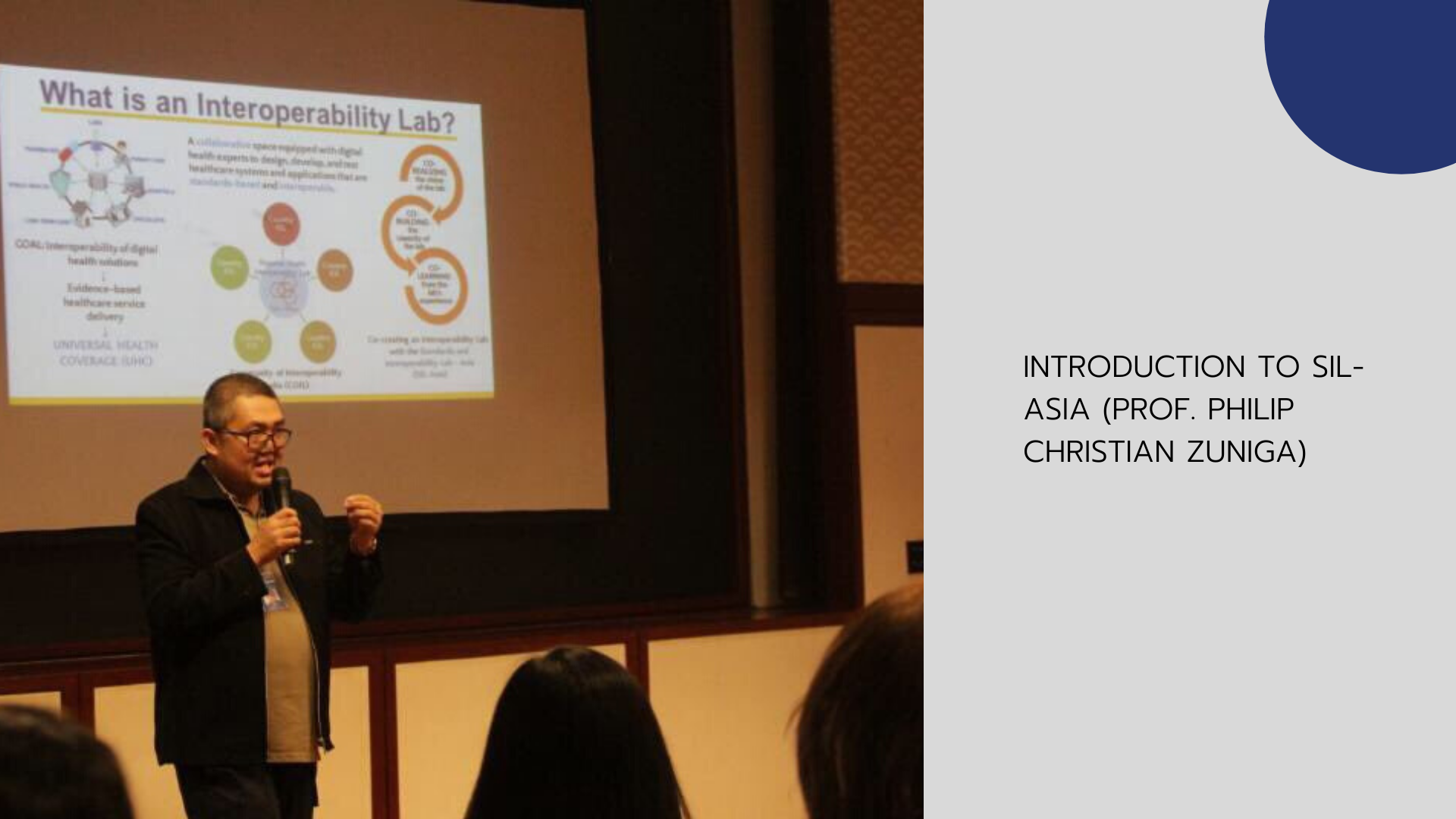
Terminology Services and FHIR Mapping
In addition, Kate Ebrill and Jim Steel from the Commonwealth Scientific and Industrial Research Organisation shared their expertise on clinical terminology services during the National FHIR Workshop.
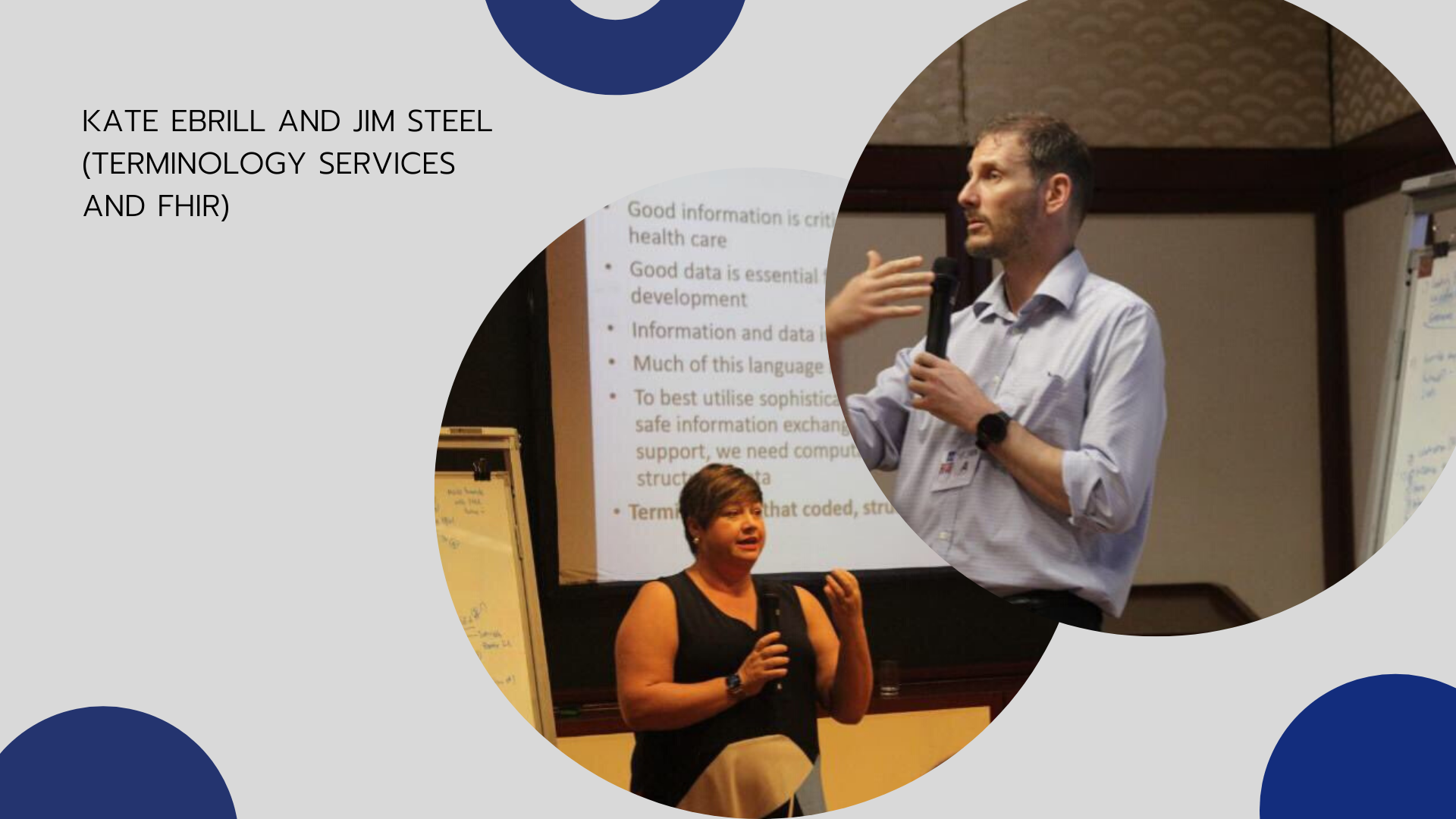
Saurav Bhattarai from GIZ also presented how information systems like openIMIS can be mapped with existing FHIR profiles to enable interoperability with other FHIR-compliant systems.
Workshop proceedings may be accessed here.
The Regional Interoperability Workshop organized by AeHIN at the sidelines of the Global Health Research Forum last August 2015 gave birth to the concept of Standards and Interoperability Lab – Asia. The regional lab aims to serve as a template of labs in each country that will later form into the Community of Interoperability Labs (COIL).











